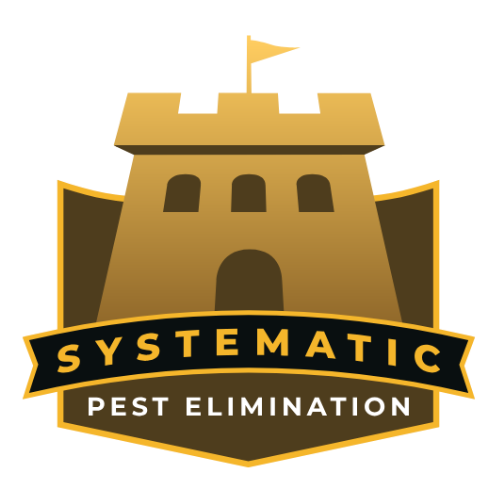How to Prevent Rat Infestations in NYC Apartments
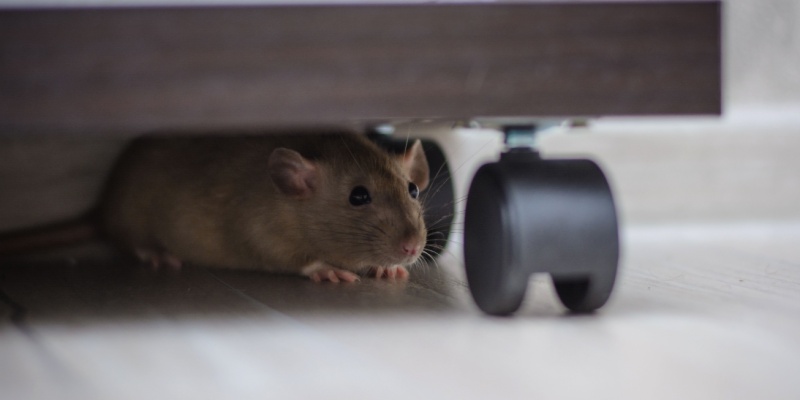
Rat infestations are a constant threat in New York City’s apartment buildings, but preventing these pests from entering your home is possible with the right strategies. Rats are notorious for spreading diseases, contaminating food, and damaging property, making it essential to take proactive measures to keep them out. By following these prevention tips, you can reduce the chances of a rat infestation in your NYC apartment. Why Rat Prevention is Important Rats are not only unsightly but also pose serious health risks. They carry diseases such as leptospirosis, salmonella, and hantavirus, which can be transmitted through their droppings, urine, and saliva. Rats can also cause significant property damage by chewing through wiring, insulation, and even walls. Preventing rats from entering your apartment is far easier and less costly than dealing with an active infestation. 1. Seal Entry Points Rats can enter buildings through tiny cracks and gaps in walls, floors, and foundations. To prevent rats from gaining access to your apartment: Regularly check your apartment for any holes, cracks, or gaps in the walls, around windows and doors, or near plumbing lines. Seal any potential entry points with materials like steel wool, metal mesh, or caulk. Rats can squeeze under doors with even small gaps. Installing door sweeps can help prevent them from entering through doorways, especially in basements and hallways. 2. Keep Your Apartment Clean Rats are attracted to food, and even small crumbs or food debris can lure them into your apartment. Keeping your living space clean is one of the most effective ways to prevent a rat infestation: Avoid leaving food out on countertops, and always store pantry items in airtight containers. This reduces the likelihood of attracting rats to your kitchen or dining area. Sweep and vacuum your floors regularly to remove crumbs and food debris. Pay special attention to areas where food is prepared or eaten, such as kitchens and dining rooms. Rats are drawn to garbage, so make sure to take out the trash regularly and keep it in a sealed, rat-proof bin. Avoid letting trash accumulate in your apartment, as this can attract rats. 3. Secure Trash Areas In apartment buildings, shared trash areas can be a common source of rat infestations. To prevent rats from accessing garbage, ensure that the building’s trash areas are well-maintained: Trash bins should have tight-fitting lids to prevent rats from accessing food waste. Make sure outdoor dumpsters are also securely closed to keep rats out. Trash areas should be cleaned regularly to remove food debris and spills that could attract rats. Property managers should ensure that these areas are properly maintained to prevent infestations. 4. Eliminate Water Sources Rats need water to survive, and they are attracted to areas with standing water or leaky pipes. Addressing any potential water sources in your apartment can help keep rats away: Check for leaks in sinks, bathrooms, and laundry areas. Even small drips can provide enough water to attract rats, so fixing leaks promptly is important. If your apartment has damp areas, such as basements or storage rooms, use dehumidifiers or fans to keep the area dry and less attractive to rats. 5. Maintain Shared Spaces In apartment buildings, common areas like basements, hallways, and laundry rooms can also provide entry points for rats. Work with your property manager to ensure these areas are properly maintained: Make sure basements, storage areas, and other common spaces are regularly inspected for signs of rats, such as droppings or gnaw marks. Setting traps in common areas can help catch any rats that may be attempting to enter the building. Check traps regularly and dispose of caught rats properly. Professional Help for Rat Prevention Preventing rat infestations in NYC apartments is a team effort between tenants and property managers. If you notice signs of rats, such as droppings, gnaw marks, or strange noises in the walls, it’s important to act quickly. Professional pest services from Systematic Pest Control can provide comprehensive rat prevention strategies, including sealing entry points, setting traps, and providing ongoing monitoring to keep your apartment rat-free.
Seasonal Rat Control Tips for New York City Apartment Buildings

Rats are a common problem in New York City apartment buildings year-round, but seasonal changes can influence their behavior and make infestations more likely at certain times of the year. Understanding how different seasons affect rat activity is essential for keeping these pests out of your apartment building. By taking proactive steps and adjusting your rat control strategies with the seasons, you can reduce the risk of an infestation and protect your building’s tenants. Why Seasonal Rat Control Matters Rats are highly adaptable creatures, and they adjust their behavior based on the availability of food, shelter, and weather conditions. In New York City, rats tend to move indoors during colder months to seek warmth and food, while warmer months can bring an increase in their breeding and activity. Seasonal rat control is crucial because different times of the year present unique challenges in keeping these pests at bay. Winter: Keeping Rats Out of Buildings Winter is one of the peak seasons for rat infestations in apartment buildings because rats seek warmth and shelter as temperatures drop. During this time, they may enter buildings through small cracks, gaps in the foundation, or even utility lines. Here are some key winter rat control tips: 1. Seal Entry Points Inspect the building’s exterior for cracks, holes, or gaps where rats can squeeze through. Pay attention to areas around windows, doors, vents, and utility lines. Seal any potential entry points with metal mesh, caulk, or steel wool. 2. Store Food Properly Rats are attracted to food, so encourage tenants to store food in airtight containers and avoid leaving food out overnight. Common areas, such as laundry rooms and lobbies, should be kept clean and free of food debris. 3. Regular Trash Removal Ensure that trash is removed regularly and stored in secure, rat-proof containers. Rats are highly attracted to garbage, and any access to food waste can quickly lead to an infestation. 4. Monitor Basements and Storage Areas These areas tend to be warm and undisturbed, making them prime spots for rats to nest. Regularly check these areas for signs of rat activity, such as droppings or gnaw marks. Spring: Preventing Breeding and Nesting As the weather warms up in the spring, rats become more active and begin breeding. Early spring is a critical time to prevent rats from nesting and multiplying in your apartment building: 1. Spring Cleaning Encourage tenants to participate in spring cleaning efforts, especially in storage areas and basements. Clutter provides excellent nesting sites for rats, so removing unnecessary items can reduce the risk of infestation. 2. Trim Landscaping Rats use overgrown vegetation as cover to get close to buildings. Trim bushes, trees, and shrubs around the property to eliminate hiding spots and reduce access to entry points. 3. Check for Damage The winter months can cause wear and tear on buildings, creating new entry points for rats. After winter, inspect the building for any damage and make necessary repairs to keep rats out. Summer: Controlling Food Sources and Waste Summer brings an increase in outdoor dining and food waste, which can attract rats to apartment buildings. Additionally, rats are more active in the warmer months and may be more likely to venture into common areas: 1. Secure Trash Areas Make sure that outdoor trash areas are properly maintained and that dumpsters are cleaned regularly. Trash should always be stored in rat-proof containers with tight-fitting lids to prevent access. 2. Maintain Clean Common Areas Outdoor areas, such as courtyards or playgrounds, should be kept free of food debris. Provide trash bins in common areas and ensure they are emptied regularly. 3. Install Door Sweeps Rats can easily slip under doors with gaps at the bottom. Installing door sweeps can help prevent them from entering the building, especially in high-traffic areas such as basements or storage rooms. Fall: Preparing for Winter As fall approaches, rats begin to seek warm places to spend the colder months. Fall is a crucial time to reinforce your rat control measures and prepare for winter: 1. Inspect Utility Lines Rats often enter buildings through gaps around utility lines. Make sure these areas are sealed tightly to prevent entry. 2. Set Traps Early Start setting rat traps or bait stations in areas where you’ve previously seen activity. Catching rats early in the fall can prevent them from moving indoors as temperatures drop. 3. Clean Gutters and Drains Rats are attracted to standing water, so keeping gutters and drains clear of debris can reduce potential water sources that attract them. Year-Round Pest Control Services While seasonal rat control measures are important, partnering with a professional pest control service ensures comprehensive protection year-round. Pest control experts can provide ongoing monitoring, baiting, and exclusion services to keep your apartment building rat-free, regardless of the season.
Rodent Proofing Your NYC Restaurant: Essential Tips to Keep Rats Away

New York City’s restaurants are prime targets for rats, thanks to the abundance of food and hiding spots they offer. A single rat sighting in your restaurant can damage your reputation and lead to costly fines or even closure by the health department. That’s why rodent-proofing your restaurant is essential for keeping rats away and protecting your business. Here are some key strategies for keeping rats out of your NYC restaurant: 1. Seal Entry Points Rats can squeeze through openings as small as a quarter, making it crucial to seal any potential entry points in your restaurant. Here’s what to look for: Inspect the exterior of your building for cracks, gaps, or holes in walls, windows, and doors. Use caulk, steel wool, or metal mesh to seal these openings. Rats can enter through gaps around utility lines, such as plumbing and electrical cables. Make sure these areas are properly sealed to prevent rats from sneaking in. Rats can access your restaurant through floor drains, so it’s important to install rat guards or covers to prevent entry. 2. Keep Food and Waste Secure Rats are attracted to food, so proper storage and waste management are critical for keeping them out of your restaurant. Follow these guidelines to prevent rats from finding a food source: All food should be stored in sealed, rat-proof containers, preferably made of metal or thick plastic. Avoid leaving food out overnight, and make sure pantry areas are clean and organized. Food spills and crumbs are an open invitation for rats. Make sure your kitchen and dining areas are cleaned thoroughly at the end of each day, and wipe down all surfaces regularly. Rats are attracted to garbage, so use heavy-duty, rat-proof trash bins with tight-fitting lids. Keep outdoor dumpsters clean and well-maintained, and dispose of garbage regularly to avoid attracting rats. 3. Maintain a Clean Environment Cleanliness is one of the most effective ways to prevent a rat infestation in your restaurant. Rats thrive in unsanitary conditions, so maintaining a clean environment is key: Don’t forget to clean under and behind appliances, where food debris can accumulate. Pay special attention to areas near dishwashers, ovens, and refrigerators. After each shift, thoroughly sanitize all food prep areas, counters, and floors to remove any food residue. Grease traps can attract rats if not emptied regularly. Make sure grease traps are cleaned and maintained according to your restaurant’s schedule. 4. Inspect and Maintain Your Building Regular inspections and maintenance are crucial for keeping rats out of your restaurant. Here’s what to focus on: Conduct regular inspections of your building, paying close attention to areas where rats might enter, such as basements, storage rooms, and garbage areas. Rats can chew through wood, insulation, and even electrical wiring. Repair any structural damage immediately to prevent rats from using it as an entry point. Look for signs of rat activity, such as droppings, gnaw marks, and grease trails along walls. If you notice any of these signs, take immediate action to address the problem. 5. Work with Professional Pest Control Services Even with the best prevention measures in place, rats can still find a way into your restaurant. That’s why partnering with a professional pest control service is essential. Pest control experts can help you: Regular pest control inspections help identify potential entry points and signs of infestation before they become a major issue. Pest control professionals can strategically place traps and bait stations around your restaurant to catch rats before they cause problems. Continuous monitoring ensures that your restaurant stays rat-free, even during peak pest seasons. Protect Your Restaurant and Reputation By taking these steps to rodent-proof your NYC restaurant, you can prevent rats from gaining access to your business and protect your reputation. A clean, rat-free environment is essential for customer satisfaction and compliance with health department regulations. Don’t wait for a rat problem to arise—invest in professional rodent-proofing services to keep your restaurant safe and pest-free.
The Legal Consequences of Rat Infestations in NYC Restaurants
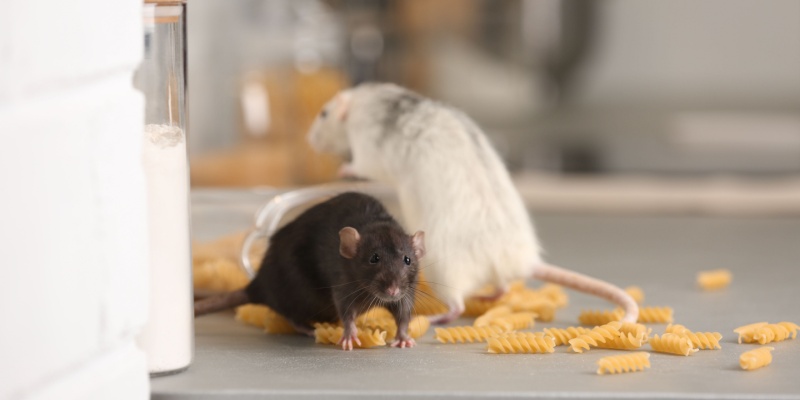
Rat infestations in restaurants are not only a health and safety issue but also come with serious legal consequences. New York City’s health department has strict regulations regarding pest control in food establishments, and restaurants that fail to comply can face significant fines, poor health inspection grades, and even closures. Understanding the legal ramifications of a rat infestation can help restaurant owners take the necessary steps to avoid legal trouble and protect their businesses. NYC Health Department Regulations on Pest Control The New York City Department of Health (DOH) has clear regulations for pest control in restaurants. Under these regulations, restaurants must maintain a clean and sanitary environment, free from pests such as rats, mice, and insects. Failing to meet these standards can result in violations, fines, and poor inspection grades. Health inspectors conduct routine inspections to ensure compliance with city regulations. During these inspections, they look for signs of pest activity, including rat droppings, gnaw marks, and grease trails. If an inspector finds evidence of a rat infestation, the restaurant can be cited for a violation, which could result in significant penalties. Fines and Penalties for Rat Infestations The fines for pest control violations in New York City can be steep. Depending on the severity of the infestation, fines can range from several hundred to several thousand dollars. Multiple violations can lead to cumulative fines, further increasing the financial burden on the restaurant owner. In addition to fines, restaurants may receive a poor health inspection grade if rats are present. In New York City, health inspection grades are posted publicly, and a low grade (such as a “C” rating) can severely impact a restaurant’s reputation, leading to a loss of customers and revenue. Temporary Closures Due to Infestations In cases of severe rat infestations, the health department has the authority to temporarily close a restaurant until the issue is resolved. A closure order is a worst-case scenario for any restaurant owner, as it can result in significant financial losses and long-term damage to the restaurant’s reputation. Before reopening, the restaurant must pass a follow-up inspection to ensure that the rat problem has been fully addressed. This often involves hiring professional pest control services, deep cleaning the premises, and making any necessary repairs to prevent rats from returning. Lawsuits and Liability Risks In addition to fines and closures, restaurants with rat infestations may face legal action from customers or employees who are affected by the presence of rats. For example, if a customer becomes ill after eating contaminated food or a staff member is injured by a rat-related hazard (such as a fire caused by rats chewing through electrical wiring), the restaurant owner may be held liable for damages. Lawsuits related to rat infestations can be costly, both financially and in terms of the damage to the restaurant’s reputation. Even if the restaurant wins the case, the negative publicity can be difficult to overcome. Steps to Avoid Legal Consequences To avoid the legal consequences of a rat infestation, restaurant owners should take a proactive approach to pest control. Here are some key steps to take: 1. Regular Pest Control Inspections Work with a professional pest control service to conduct regular inspections and treatments. Early detection and prevention are essential to keeping rats out of your restaurant. 2. Maintain Sanitation Standards A clean restaurant is less likely to attract rats. Ensure that all food prep areas, storage areas, and waste disposal areas are regularly cleaned and sanitized. 3. Respond Quickly to Complaints If a customer or employee reports seeing rats or signs of a rat infestation, take immediate action to address the issue. Ignoring complaints can lead to larger problems down the line. 4. Document Pest Control Efforts Keep records of all pest control efforts, including inspections, treatments, and repairs. If a legal issue arises, having documentation of your efforts to maintain a pest-free environment can be valuable in defending your business. By staying compliant with health department regulations and taking proactive steps to prevent rat infestations, restaurant owners can avoid costly fines, closures, and lawsuits, while protecting their business and reputation. The pros at Systematic Pest Elimination can help you protect your restaurant from rats – and the consequences that come with an infestation – reach out today.
How Rats Impact Health and Safety in New York City’s Restaurants
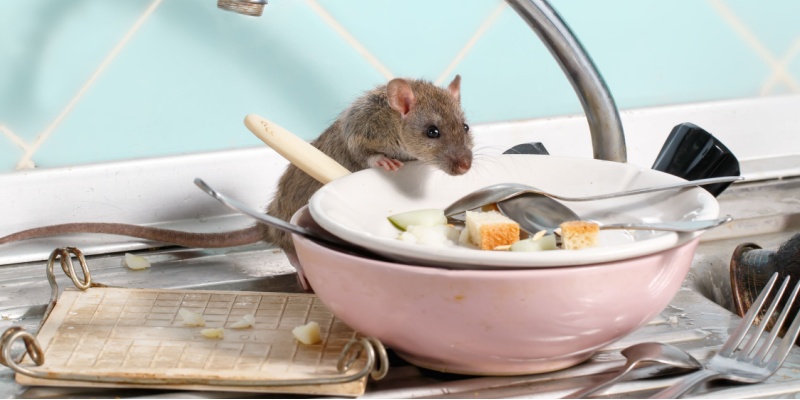
Rats in New York City’s restaurants are a significant health and safety concern. From spreading diseases to contaminating food supplies, rats can cause serious harm to both customers and staff. For restaurant owners, understanding the impact that rats can have on health and safety is essential for protecting your business and complying with city regulations. The Health Risks of Rats in Restaurants Rats are known carriers of several diseases that can be transmitted to humans through direct contact, contaminated food, or surfaces. Some of the most common health risks associated with rats include: Rats can carry and spread salmonella, a bacterial infection that causes severe food poisoning. When rats come into contact with food or food preparation areas, they can contaminate it with salmonella, putting both customers and staff at risk. This bacterial infection is spread through rat urine and can cause symptoms ranging from mild flu-like symptoms to severe complications such as kidney damage or liver failure. In a restaurant setting, rats can contaminate surfaces and food storage areas with their urine. Although less common, rat-bite fever is another serious illness caused by direct contact with rats or exposure to food contaminated by rats. Symptoms include fever, vomiting, and muscle pain, and it can be fatal if not treated promptly. Hantavirus is a potentially deadly virus that can be transmitted through contact with rat droppings, urine, or saliva. While hantavirus is more commonly associated with mice, rats can also spread the virus in certain environments. How Rats Affect Food Safety In addition to the health risks, rats can also compromise food safety in restaurants by contaminating food supplies and kitchen surfaces. Rats are known to chew through food packaging, leaving droppings and urine behind. Contaminated food must be discarded, leading to financial losses for restaurant owners. Rats can also cause damage to kitchen equipment, gnawing on wiring, insulation, and machinery. This not only leads to costly repairs but can also create safety hazards such as electrical fires. NYC Health Department Regulations and Inspections New York City has strict health department regulations regarding pest control in restaurants. The presence of rats or signs of a rat infestation can lead to fines, poor health inspection grades, and even temporary closure of the restaurant. NYC Health Department inspectors look for signs of pest activity during routine inspections, and restaurants that fail to meet sanitation standards are penalized accordingly. A single health inspection failure due to a rat infestation can severely damage a restaurant’s reputation, leading to lost customers and negative reviews. In a competitive food scene like NYC, this can be devastating for a business. What Restaurant Owners Can Do Restaurant owners must take proactive steps to prevent and eliminate rats in their establishments. Here are some key strategies: 1. Implement Regular Pest Control Partnering with a professional pest control service is essential for preventing and managing rat infestations. Routine inspections and treatments will help keep your restaurant pest-free. 2. Maintain a Clean Environment Cleanliness is critical in preventing rats from entering your restaurant. Make sure food prep areas are thoroughly cleaned, store food in sealed containers, and regularly take out the trash. 3. Secure Waste Areas Rats are attracted to garbage, so it’s important to keep outdoor trash areas clean and secure. Use heavy-duty, rat-proof bins and clean up any spills or debris around dumpsters. 4. Seal Entry Points Rats can squeeze through small cracks and gaps in walls, floors, and utility lines. Regularly inspect your building for potential entry points and seal them to prevent rats from gaining access. By taking these steps and working with a pest control professional, restaurant owners can protect the health and safety of their customers and staff while maintaining compliance with NYC regulations.
Rat Control in New York Restaurants: Protecting Your Business and Reputation
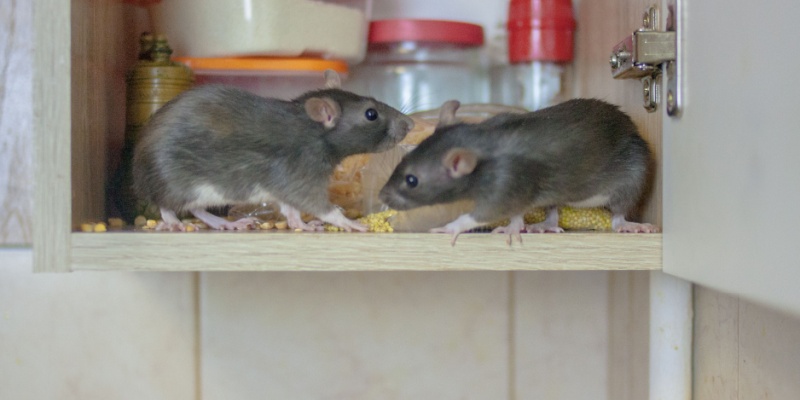
Rats are more than just a nuisance—they are a serious threat to the success of your restaurant in New York City. As a restaurant owner, your reputation is everything, and a rat infestation can quickly damage that reputation beyond repair. Additionally, rats pose significant health risks, which can lead to poor health inspections, costly fines, and even the temporary or permanent closure of your business. That’s why rat control is essential for protecting both your business and its reputation. Why Rats Are a Problem in NYC Restaurants New York City provides an ideal environment for rats, thanks to its dense population, vast food sources, and countless hiding spots. Rats are highly adaptable and can find their way into restaurants through small openings, cracks, and even sewer lines. Once inside, they can cause damage to food supplies, kitchen equipment, and structural elements of the building. Here are a few key reasons why rat control is crucial for NYC restaurants: 1. Health Risks Rats carry diseases that can be transmitted to humans, including salmonella, leptospirosis, and hantavirus. These diseases can spread through contaminated food, surfaces, or even by direct contact with rat droppings or urine. 2. Health Inspections New York City’s Health Department takes rat infestations seriously. Restaurants that fail to meet sanitation standards or show signs of a rat infestation are subject to hefty fines and poor inspection grades, which can drive customers away. 3. Reputation Damage In the age of social media, news about rat sightings or infestations can spread like wildfire. A single post or review about rats in your restaurant can lead to negative publicity that is hard to recover from. 4. Structural Damage Rats chew through wiring, insulation, and even wooden structures. This can lead to costly repairs and potential safety hazards, including electrical fires. How to Implement Effective Rat Control Rat control is an ongoing process that requires a combination of preventive measures and professional pest control services. Here’s how you can protect your restaurant from a rat infestation: Rats can squeeze through openings as small as a quarter. Regularly inspect your building for cracks, holes, and gaps around doors and windows, and seal them with metal mesh or caulk. Don’t forget to check less obvious areas like floor drains, vents, and utility lines. A clean restaurant is less attractive to rats. Make sure food prep areas are thoroughly cleaned, and don’t leave food or waste sitting out overnight. Regularly empty trash bins and store food in sealed containers. Rats are attracted to garbage, so be sure to secure your outdoor trash areas with heavy-duty, rat-proof bins. Clean the area around dumpsters regularly to avoid attracting rats. Professional rat control services are essential for preventing and managing rat infestations. Pest control experts can assess your restaurant, set up bait stations and traps, and provide ongoing monitoring to ensure rats stay away. Protect Your Restaurant and Reputation Rat control isn’t just about keeping your restaurant clean—it’s about safeguarding your reputation and maintaining the trust of your customers. By taking proactive steps to prevent and eliminate rats, you can protect your business from the damaging consequences of a rat infestation. Don’t wait for a problem to arise—invest in professional rat control services from Systematic Pest Elimination and keep your restaurant free of pests.
